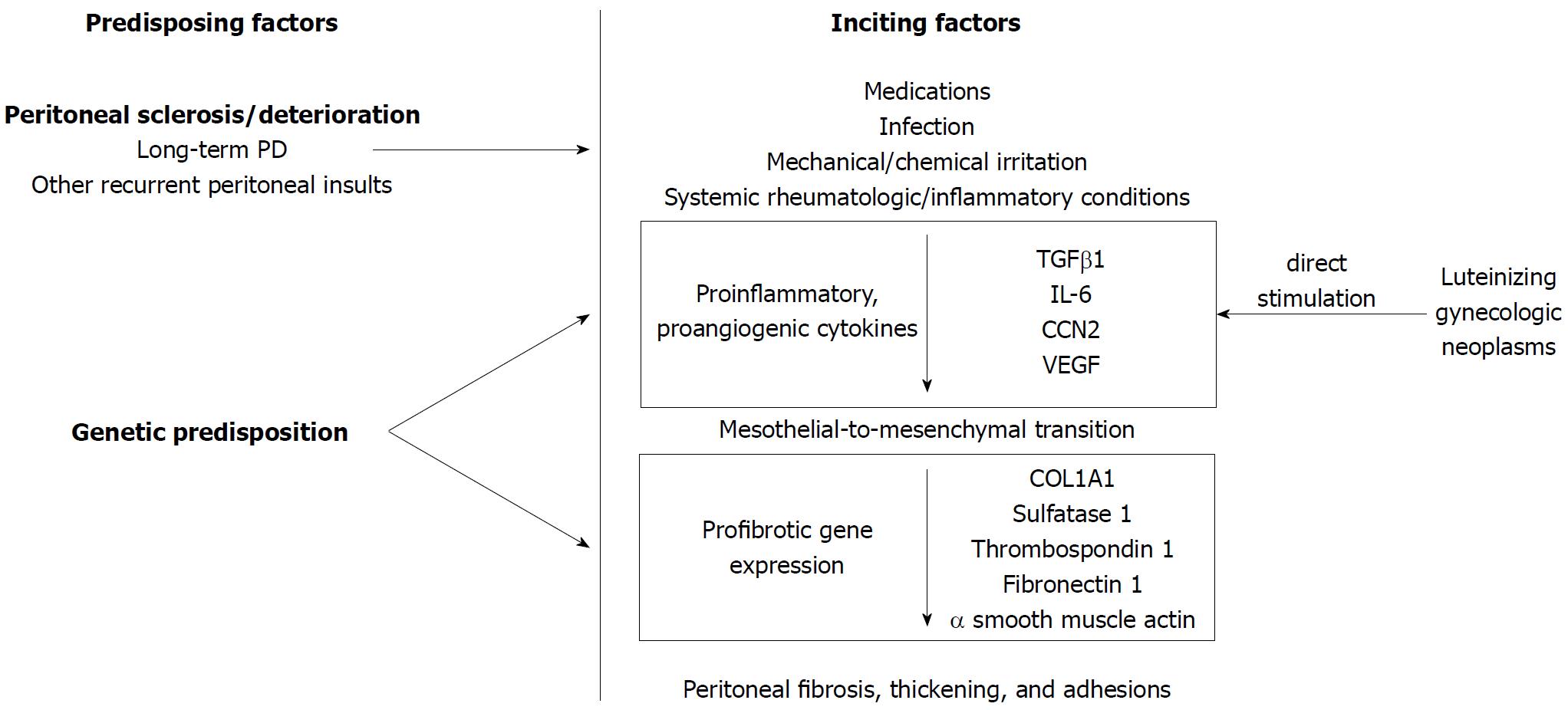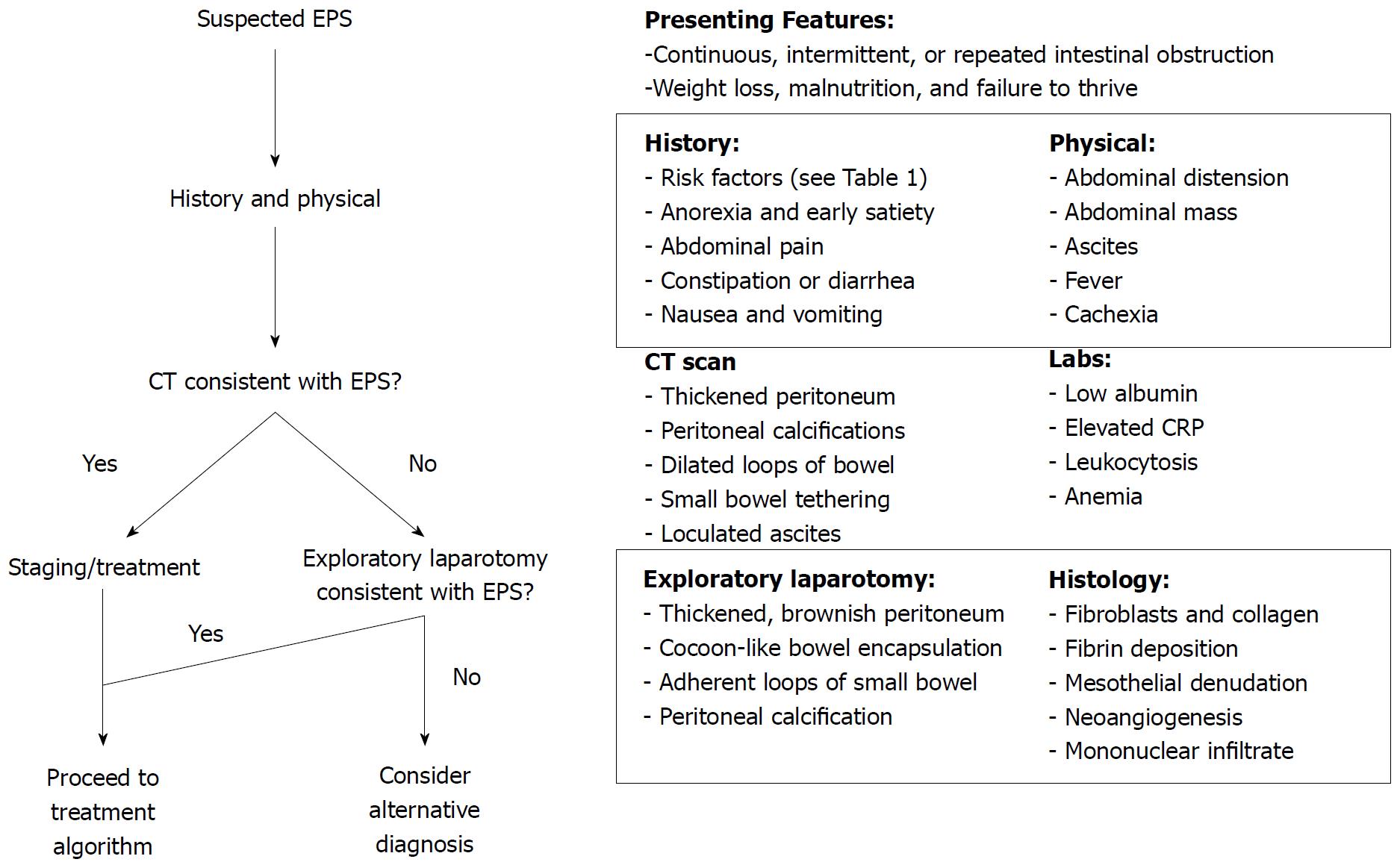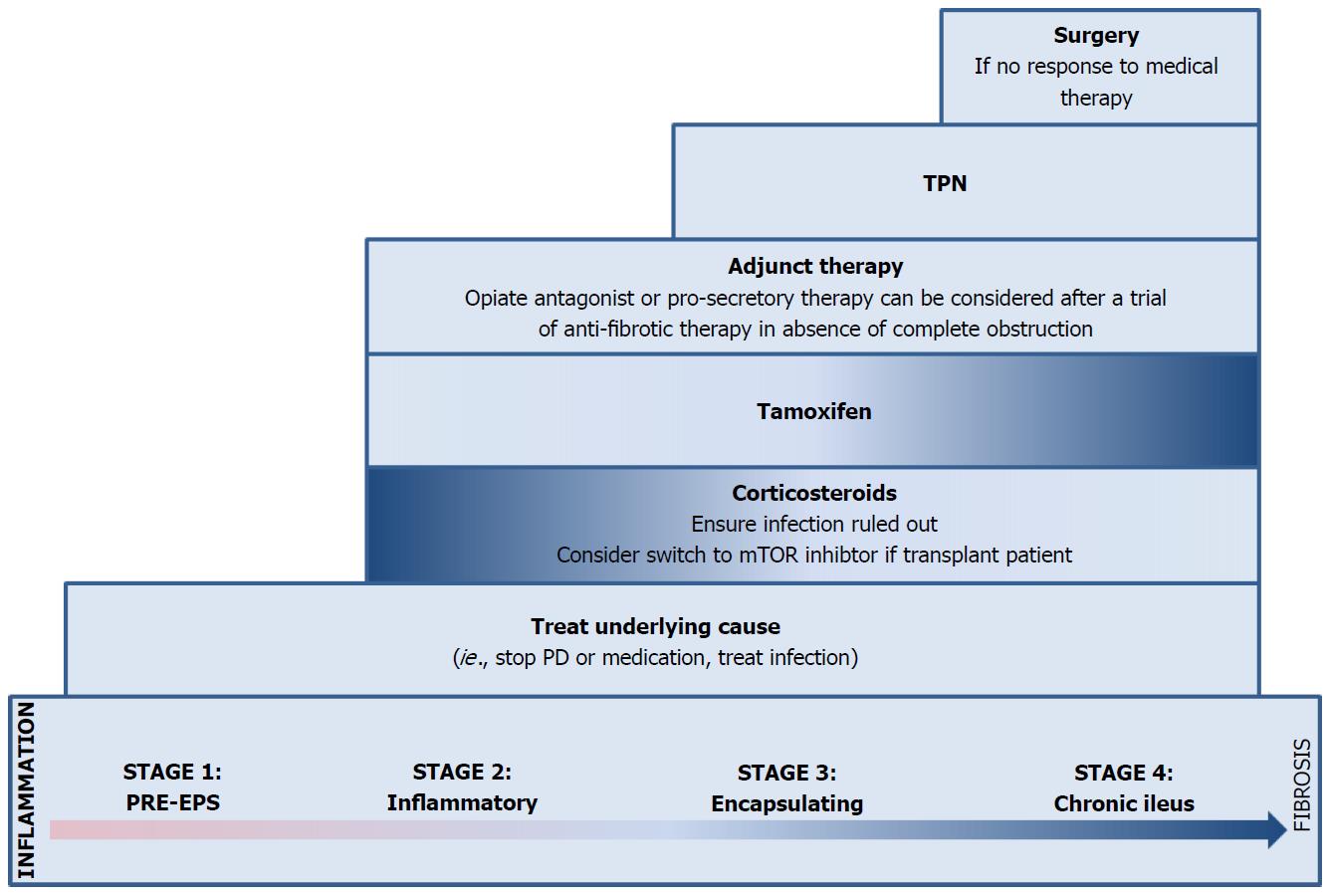Copyright
©The Author(s) 2018.
World J Gastroenterol. Jul 28, 2018; 24(28): 3101-3111
Published online Jul 28, 2018. doi: 10.3748/wjg.v24.i28.3101
Published online Jul 28, 2018. doi: 10.3748/wjg.v24.i28.3101
Figure 1 Pathophysiology of encapsulating peritoneal sclerosis.
Certain predisposing factors may be present for encapsulating peritoneal sclerosis to form, such as genetic predisposition or being on long-term peritoneal dialysis. Inciting factors that may push the physiology towards a pro-inflammatory and pro-fibrotic state include medications, repeated chemical or mechanical peritoneal irritation, recurrent infections, and systemic rheumatologic or inflammatory conditions.
Figure 2 Proposed algorithm for the diagnosis of encapsulating peritoneal sclerosis.
The diagnosis of EPS is a clinical one that can be confirmed with imaging or at laparotomy. Various presenting features and symptoms, clues obtained in the history (risk factors) and physical exam can point towards the diagnosis of EPS. CT/MRI findings include thickened peritoneum, calcifications, and may even demonstrate cocooning of the bowel with proximal dilation, as seen in our case. EPS: Encapsulating peritoneal sclerosis
Figure 3 Therapeutic and management approach for encapsulating peritoneal sclerosis.
Treatment strategies should be tailored to each patient, depending on the extent and stage of EPS. In all stages, especially during the early stages, the underlying cause should be identified and treated or removed. During the earlier stages (Stage 1-2), the pathophysiology tends to be more inflammatory and the degree of sclerosis tends to be minimal. Thus, after infection has been ruled out, corticosteroids may be of benefit. In the later stages (Stage 3-4), more advanced sclerosis may be present, and patients may start exhibiting signs and symptoms of partial or complete bowel obstruction. In treating abdominal pain, opioids should be avoided. However, this may not always be possible and thus opiate antagonists are recommended in this setting. Tamoxifen plays an increasing rule in the later stages. If poor oral intake or malnutrition is present, total parenteral nutrition may be required. If symptoms are severe and there has been no response to medical therapy, surgical intervention may be considered. EPS: Encapsulating peritoneal sclerosis.
- Citation: Danford CJ, Lin SC, Smith MP, Wolf JL. Encapsulating peritoneal sclerosis. World J Gastroenterol 2018; 24(28): 3101-3111
- URL: https://www.wjgnet.com/1007-9327/full/v24/i28/3101.htm
- DOI: https://dx.doi.org/10.3748/wjg.v24.i28.3101















